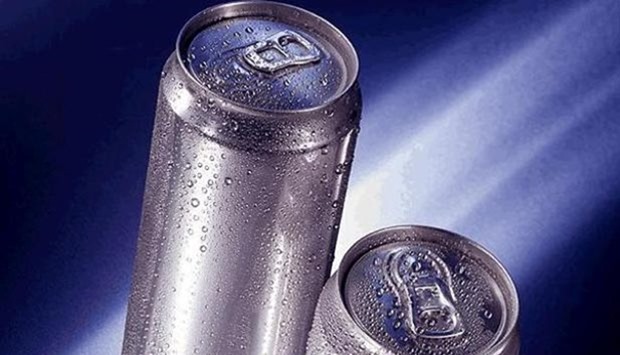Energy drinks, according to the World Health Organisation (WHO), are “non-alcoholic beverages that contain caffeine, vitamins, and other ingredients for example, taurine, ginseng, and guarana. They are typically marketed as boosting energy and increasing physical and mental performance.”
In a study, a team of researchers from the WHO Regional Office for Europe said “increased consumption of energy drinks may pose danger to public health, especially among young people.”
Speaking to Gulf Times on Friday, a Doha-based general practitioner said a person should be aware if he or she is suffering from a medical condition before consuming any brand of energy drinks available in the market.

The Ministry of Economy and Commerce advisory on the consumption of energy drinks is on display at a Doha outlet.
“Since these products contain high amounts of caffeine and sugar, they can cause serious health problems to persons who already have medical conditions,” she pointed out.
In the Food Standards Agency website, it said: “Energy drinks can contain high levels of caffeine, usually about 80 milligrams (mg) of caffeine in a small 250ml can – this is similar to three cans of cola or a mug of instant coffee.
“As well as caffeine, they may contain other ingredients, such as glucuronolactone and taurine, and sometimes vitamins and minerals or herbal substances. Some of the smaller ‘energy shot’ products can contain anywhere from 80mg to as much as 160mg of caffeine in a 60ml bottle.”
The website also cited the European Food Safety Authority’s (EFSA) opinion on the safety of caffeine, which was published in May 2015.
“EFSA considered research on short term adverse effects of caffeine such as interrupted sleep, anxiety and behavioural changes (e.g. effects on the central nervous system) and increased blood pressure (e.g. effects on the cardiovascular system). They did not consider studies on ‘beneficial’ effects such as increased alertness.”
In the WHO study, the authors concluded: “As energy drink sales are rarely regulated by age, unlike alcohol and tobacco, and there is a proven potential negative effect on children, there is the potential for a significant public health problem in the future.”
In Qatar, the Ministry of Economy and Commerce (MEC) has issued a warning to consumers: “Avoid energy drinks if you belong to any of the following profiles: Expecting and nursing mothers; children under 16 years old; people with an allergy to caffeine; people with heart condition; and athletes during training.”
But it has been observed, especially inside the malls in Doha, that many teenagers are seen consuming energy drinks despite government warnings.
“Perhaps, because it has been widely advertised in many youth-oriented sporting events and extreme games that these energy drinks have become very appealing to the younger generation,” said one staff member of a sports shop at a popular mall in Doha.
Gym instructor, Muneer of German Fitness Centre, said he recommends eight hours of sleep and a balanced diet for sustained energy, especially for people who are active or spend long hours at work.
“Rather than consuming energy drinks, it is healthier to drink fresh fruit juices or increase water intake. It is also important to eat a balanced meal and incorporate protein and leafy green vegetables into one’s diet, and get plenty of sleep,” he added.

